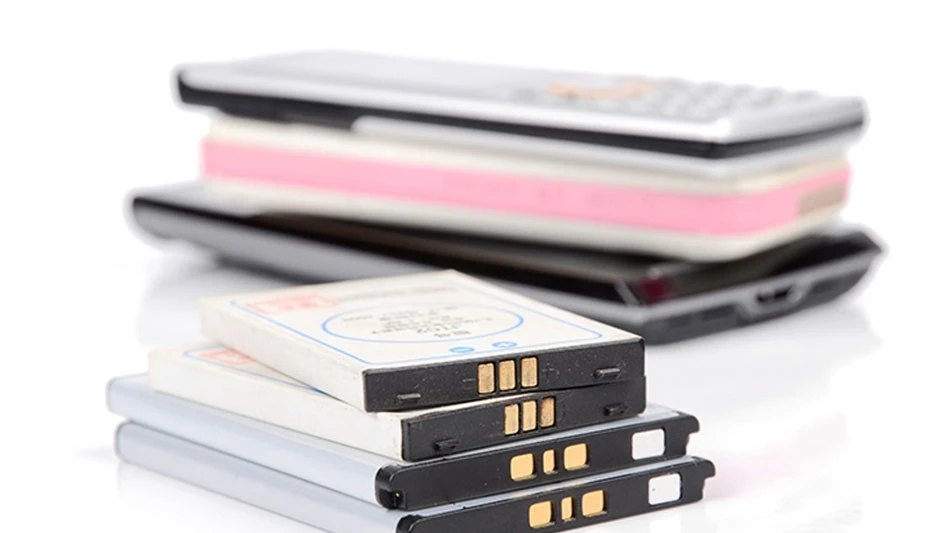
© Anaken2012 | Dreamstime.com
California lawmakers passed a pair of bills, Senate Bill 1215 and Assembly Bill 2440, to create a statewide collection and recycling program for products that contain batteries and consumer batteries, respectively.
California classifies batteries as hazardous waste and bans them from landfills because of the hazardous metals and corrosive materials they contain. S.B. 1215, which is authored by California Sen. Josh Newman, expands the state’s existing Electronic Waste Recycling Act to include products containing batteries that cannot be easily removed without household tools. A.B. 2440 establishes a large extended producer responsibility (EPR) battery program, also helping to eliminate the threat of fires at waste and recycling facilities.
“From talking greeting cards to electronic toothbrushes to smartwatches, even though battery-embedded products are now so thoroughly integrated into our modern lives, there was still no standardized system for the safe and efficient collection and disposal of this class of potentially hazardous waste,” Newman says.
According to a news release from Newman’s website, S.B. 1215 helps to curb the number of battery-embedded products that are improperly disposed of so that they no longer pose a danger to the companies and employees charged with managing them.
The news release also states that these two pieces of legislation replace the state’s current process for battery disposal with what the lawmaker says he hopes is a more “safe, convenient and accessible system for consumers to dispose of depleted batteries and battery-embedded products.”
California Assemblymember Jacqui Irwin, author of A.B. 2440, says too many used batteries end up in curbside waste and recycling containers, which damages recycling facilities and causes ratepayers to pay higher utility bills. She says this bill will require producers to pay for the collection of batteries instead.
“With so many of our everyday household items being powered by batteries, we have a responsibility to alleviate the potential danger and recover the valuable minerals used in their production,” Irwin adds.
Several recycling industry representatives and organizations have expressed support for these bills.
Atlanta-based Call2Recycle, a battery collection program, says A.B. 2440 could help to improve the safety of battery recycling in the state.
“As batteries power the U.S. toward a carbon-neutral economy, it’s imperative that states and municipalities implement industry best practices that promote safe, sustainable battery collection and recycling,” says Leo Raudys, CEO of Call2Recycle. “We look forward to working with the state of California to continue building on our 26 years of operating a battery stewardship program in the state.”
Joe LaMariana, executive director of San Carlos, California-based RethinkWaste and a co-sponsor of the bills, adds that these regulations will help reduce the chance of fires in recycling facilities in the state.
“This year alone, RethinkWaste has already suffered six fires due to a lithium-ion or suspected lithium-ion battery,” he says. “I fear every day an improperly disposed of product with an embedded battery or loose battery could result in another catastrophic fire like the one we faced in 2016. S.B. 1215 and A.B. 2440 together will protect our workers and infrastructure from the growing number of batteries entering the waste stream on a daily basis. We are grateful for Sen. Newman and Assemblymember Irwin’s leadership on this critical issue.”
Additionally, California Product Stewardship Council Executive Director Doug Kobold says these bills provide a “consumer-convenient solution to collect and properly manage both loose batteries and battery-embedded products.”
S.B. 1215 and A.B. 2440 are awaiting approval from California Gov. Gavin Newsom.
Latest from Recycling Today
- Orion ramping up Rocky Mountain Steel rail line
- Proposed bill would provide ‘regulatory clarity’ for chemical recycling
- Alberta Ag-Plastic pilot program continues, expands with renewed funding
- ReMA urges open intra-North American scrap trade
- Axium awarded by regional organization
- Update: China to introduce steel export quotas
- Thyssenkrupp idles capacity in Europe
- Phoenix Technologies closes Ohio rPET facility





